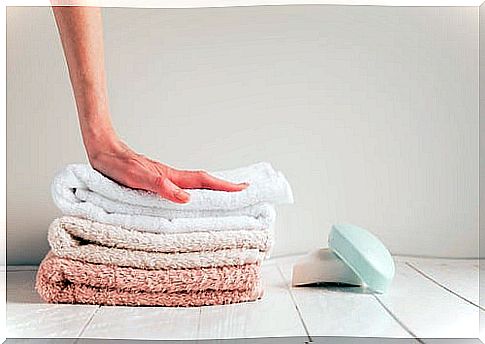Vaginal Health Tips
The vagina is home to more than 8,000 nerve endings and is an organ that, like any other, requires special care. Do you know which ones they are? Here we present the 6 tips for the health of the vagina.
First of all, you should consider that a healthy vagina has an acidic pH and beneficial bacteria to prevent infections. In addition to secreting small amounts of flow that fulfill the function of keeping it clean.
Any alteration leads to the appearance of irritations or infections, that is why it is very important that you learn to take care of it correctly.
Maintain proper hygiene

When washing your vagina, remember that it is best to opt for a soap specially designed for it or, failing that, a neutral soap. This area is very delicate and prone to irritation, so washing it with normal soap can cause dryness and other discomfort.
Keep in mind that a bad wash (or lack of it) can considerably increase the risk of contracting various infections.
How to carry out a good wash?
- Prepare warm water and wet your intimate area several times.
- Take an odorless intimate soap and rub it in gently.
- Wash off the soap with warm water again. (Never spend too much time with the soap applied to the area).
- Gently dry the area very well.
On the other hand, waxing the intimate area is also recommended to avoid the accumulation of bacteria and thus prevent vaginal infections.
Care during menstruation
During the menstrual period, hormonal changes occur that cause imbalances in vaginal pH. Blood and the use of pads and tampons increase the likelihood of infections.
It is essential that, in addition to daily washing, you change your tampons several times a day, specifically every four hours (or sooner if you have heavy flow). Never leave the same wipe on 24 hours a day, as you could get sick.
- Every time you change the wipe, tampon or cup, it is recommended that you wash with water and neutral soap.
Discover: Toxic Shock Syndrome and Tampon Use
Wear cotton underwear

When choosing underwear make sure it is made with cotton, a material that is healthy for the vagina because it allows perspiration. If you are wearing underwear made of synthetic or polyester fabric, you should make sure that the area that is in direct contact with the vagina has a cotton lining.
Whenever possible, wear loose, permeable garments made of natural fabrics. The tight ones can prevent perspiration, create excess moisture in the area and thus, favor the growth of yeast and bacteria, which are conductors of infections.
- Never wear wet underwear.
Care during sex

The care around intimate relationships is also very important for the health of your vagina, so we recommend:
- Wash your hands before and after sex.
- Take a shower afterwards.
- Avoid using scented products that are not designed for the area.
A ritual that you should perform before and after having sex is urinating. By doing so, you prevent bacteria from building up in the urinary tract. Likewise, it is recommended that you always wash after having sex, even when your partner used a condom, since it is necessary to remove the residues of the lubricant.
Remember that condoms, in addition to protecting you from an unwanted pregnancy, protect you from sexually transmitted infections (STIs), such as bacterial vaginosis.
- Consuming yogurt or applying it to the vagina has not been scientifically proven to provide health benefits. On the other hand, although it has not been proven that the consumption of probiotics can make a significant contribution, their consumption is still recommended within a balanced diet.
Visit the doctor regularly
From puberty all women should visit the gynecologist to receive general information about their vaginal health. And if you are sexually active or over 21 years old, we advise you to have a cytology every two or three years to check for infection, abnormalities or cervical cancer.
In case you have any questions about your intimate well-being, do not wait for the routine examination, go to the specialist immediately. Each body is different and an activity, a product or a garment can be good for one woman, but not another, who better than a gynecologist to guide you?
Unpleasant odors, itching, bleeding, and vaginal dryness are just a few issues that can be avoided or addressed promptly if you follow the vaginal health tips we’ve given you. Take them to practice and your intimate area will thank you.








